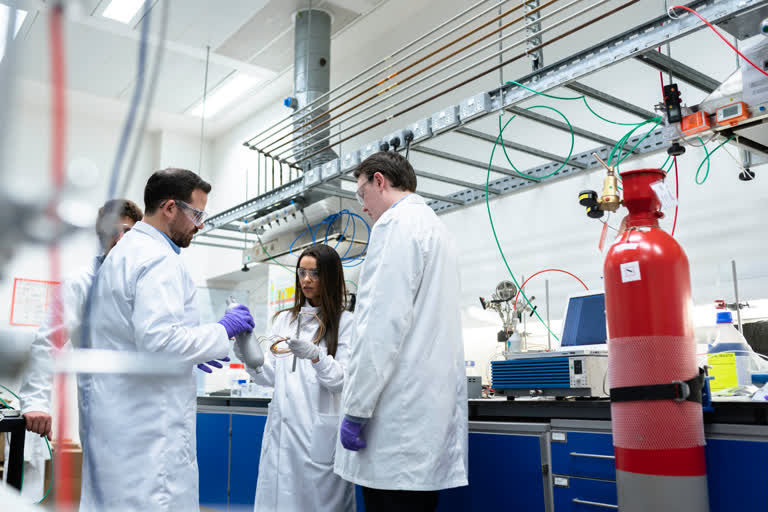Hyderabad: The COVID-19 pandemic has not only brought the normal life to a standstill but also disrupted the functioning of educational and research institutions.
May it be schools, colleges and universities or research facilities, all are suffering from the adverse effects of lockdown with coronavirus spreading its tentacles far and wide across the globe.
The COVID-19 pandemic has left no place unmarked on the globe, may it be a highly populated land or sparsely populated area like Argentinian Pampas.
The Pierre Auger Observatory, an international cosmic ray observatory in Argentina, scattered across some 3,000 square kilometres couldn't also able mark itself safe from the virus scare.
Project manager Ingo Allekotte, a physicist based 1,000 kilometres south at the Bariloche Atomic Center in Argentina, said, "Operations have halted and maintenance staff have been barred from doing regular works after nation-wide lockdown."
"As a result, with a long term lack of maintenance, individual detectors will go 'dark'," he said, adding that, "Already, the observatory has had to shut down its fluorescence detectors, which monitor the sky above for the ultraviolet flashes of cosmic rays."
This is not only the case. Scores of 'big physics' facilities and astronomical observatories around the globe are going through the same crisis. Many of them have reduced their operations or went for a shutdown.
Also Read: China contained COVID-19, yet its jitters are far from over
The US Department of Energy's 17 national laboratories are operating in telecommunication mode and stopped major experiments.
Meanwhile, Lawrence Livermore National Laboratory, the world’s largest laser designed for nuclear-fusion experiments located in California is suffering from the same.
"Some big-physics projects are still collecting data. Large-scale experiments run by international collaborations have long been moving towards the ability to run with minimal on-site support, as team members monitor the functioning of these projects from around the world," sais Nigel Smith, the director of the SNOLAB underground facility located in Canada. The laboratory is specialised in dark matter and neutrinos physics.
"The ability to remotely operate is baked into the systems," said Smith, adding that, "This is the case at SNOLAB, where major detectors are still running."
Similarly, the Gran Sasso National Laboratories, another major underground facility, in central Italy, is going through the same situation. Even if the upgrades and construction are paused, ongoing experiments on neutrinos and dark matter are still on despite the lockdown.
“Experiments in Gran Sasso are designed to be run with no local attendance,” spokesperson Roberta Antolini said.
Also Read: SKorea's battle to contain COVID-19 is worth emulating
CERN, the European organisation for nuclear research, near Geneva, Switzerland, has also suspended its upgrade work on the Large Hadron Collider.



